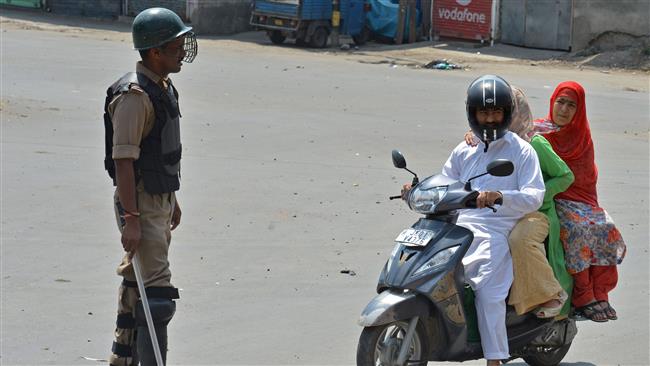Kashmir curfew extended to prevent anti-India rallies


New Delhi has extended curfew in several parts of Indian-controlled Kashmir for a 28th day in an attempt to prevent more pro-independence protests across the disputed Himalayan region.
A large number of paramilitary troops patrolled the deserted streets of many towns across the region, including the city of Srinagar, the summer capital of Jammu and Kashmir.
The authorities have ordered strict restrictions on the movement of residents across the Muslim-majority region.
Almost all businesses and institution remained closed and traffic stayed off the streets in Srinagar and other major towns across the disputed valley.
Meanwhile, pro-independence leaders have urged Kashmiris to defy the curfew by marching to the Hazratbal shrine in Srinagar and stage anti-India protests after Friday prayers.

Large parts of the Indian-controlled Kashmir have been under a 24-hour curfew in recent weeks.
On July 8, Indian troops killed a pro-independence leader in Kashmir. Several deadly protests have been held in the region ever since. Over 50 people have been killed and nearly 4,000 injured in the protests.
Kashmir, a Himalayan region known for its beautiful landscapes, lies at the heart of more than 69 years of hostility between India and Pakistan. Both neighbors claim the region in full but have partial control over it. India controls two thirds of Kashmir while the remaining one third is under the Pakistani rule.
The last bout of serious violence in the scenic valley was in the summer of 2010, when more than 100 people died in anti-India protests.







